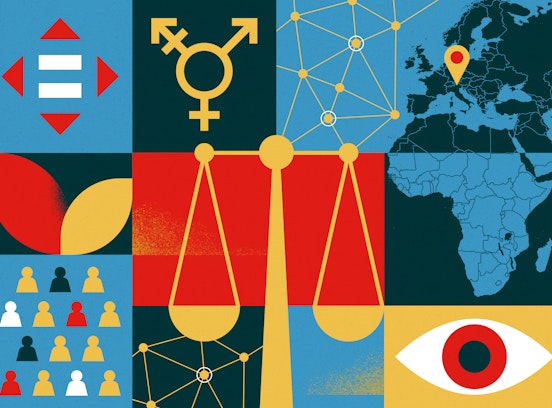Center for Advanced Studies - News & Events - Globalization Trends 2040: Economy, Politics, Ideology
Globalization Trends 2040: Economy, Politics, Ideology
Manfred B. Steger, one of the most renowned researchers in the field of global studies, offers his expertise in a total of four public lectures on topics related to the diverse dynamics of globalization.
- Date: 18.11.2021, 9.00 - 11.00 CET
- Place: Online on Zoom
- Typology: Public Lecture
Past, present and future of globalization
We are honored and so very excited to welcome Manfred B. Steger, Professor of Global and Transnational Sociology at the University of Hawaii-Mānoa as Distinguished Global Fellow 2021 at the Center for Advanced Studies. Up until December 2021, Manfred Steger will provide his expertise as one of the most acclaimed researchers in the field of Global Studies to the scientists at Eurac Research and to the broader public. Since globalization affects everyone, there will be four public lectures open to all interested parties.
4th Public Lecture
Globalization Trends 2040: Economy, Politics, Ideology
18.11.2021 | 9 – 11 am
Take part!
Join us on Zoom: https://scientificnet.zoom.us/j/99079456749?pwd=R1RlcDJ4Rnd5cmxKNzI3K2VZNDV1QT09
Participation is free of charge and open to all interested parties.
Abstract
Where is globalization headed in the next twenty years? Reading large data sets through his theoretical framework of globalization, Professor Manfred Steger examines global trends related to three social dimensions: economic dynamic of “fragmegration,” political volatility, and ideological struggles. A more competitive global environment will deepen economic inequality while heightening the risk of large-scale political conflicts and ideological confrontations. The growing gap between what globally connected citizens demand from their national government and what states and corporations can deliver will not only increase cultural differentiation along proliferating identity categories, but also continue to drive up the national debt levels. At the same time, the rising global imaginary provides a golden opportunity for the design and development of new global governance structures that are more capable of coordinating cooperative responses to global problems. As China consolidates its superpower status, the worldwide contest over the shaping of global norms, rules, and institutions is likely to heat up. The talk ends with the short discussion of two possible future scenarios: (1) hypercompetitive co-existence; and (2) fragmenting regionalization.
Organisation
Eurac Research
Center for Advanced Studies
Drususallee 1 / Viale Druso 1
39100 Bozen / Bolzano
T +39 0471 055 801
advanced.studies@eurac.edu










